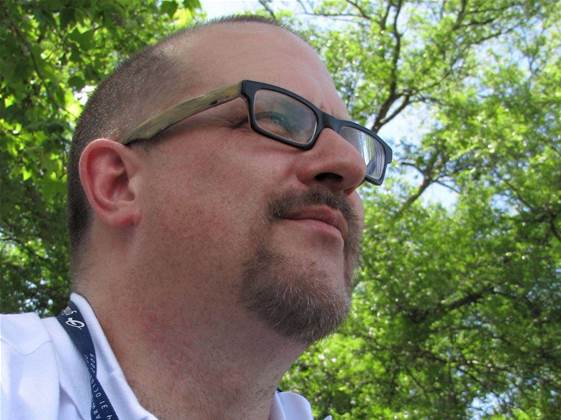This article has been reviewed according to Science X's editorial process and policies. Editors have highlighted the following attributes while ensuring the content's credibility:
fact-checked
trusted source
proofread
Simon Hackett's blueprint to cut NBN cost
NBN Co could reduce subcontractor stress, lower its build costs and speed up the rollout by taking the knife to its network construct, according to internet visionary Simon Hackett.

Speaking in a personal capacity at the CommsDay Wholesale & Data Centre Summit in Sydney this week, Hackett laid out a detailed list of NBN "optimisations" that could benefit the wholesale industry and internet users.
"There's been a lot of focus over time about contractors building the network and about the trials and tribulations they have about having their noses held to the grindstone to build this thing cheaply," he said.
"The question is: Are they building the right thing? I don't mean copper versus fibre — I mean, has there been a proper root-and-branch re-examination end-to-end of the design the network is using to try to find cost and technical optimisations in other places to make this work?
"I put it to you that a lot of the reason why this stress is happening in the deployment of the network, why subcontractors are starting to get more and more upset about the whole process, and more and more squeezed, is they are deploying a design which itself needs to be reviewed.
"Reviewing the design might save a lot more effort and money than just pushing those subcontractors over the edge."
Hackett believed the philosophy of Lotus founder Colin Chapman — "Simplify, then add lightness" — could also be applied to the NBN design.
"You don't just optimise — once you've optimised, then you just do it again and you start taking stuff out that you really don't need in order to get the result you want," Hackett said.
Hackett saw NBN Co's "extensive quality-of-service controls" and the UNI-V (voice) ports on the network termination device (NTD) as things that could be dispensed with.
Further, he believed some of the NTD's Ethernet ports could also be given the chop.
"The point about the NTD is it contains six ports on it. I put it to you that the overwhelming majority of people that use the network will only ever use one of those ports — Ethernet port number one," Hackett said.
Hackett raised the prospect of NBN Co deploying a single Ethernet port box instead of its current array of four Ethernet ports, two voice ports and a back-up battery.
He said that not only would this reduce the costs of the on-premises hardware, it would also reduce the amount of software customisation required for the current NTD.
"It turns out that NBN Co have made their vendor Alcatel jump through incredible hoops," Hackett said.
"The NTDs that Alcatel have delivered have got enormous amounts of custom software engineering put into them at NBN Co's expense in order to make that box look like six separate boxes, so each of the ports can be driven separately on the NBN.
"You can have four different RSPs on the data ports and the voice ports work independently as well. That virtualisation — running six virtual networks inside the one box — is actually pushing what the Alcatel box is capable of, and it's caused quite large delays in getting feature sets out," Hackett alleged.
Extensive customisation also promoted vendor lock-in, which ran counter to "the idea that we're going to gain improved economies over time" by deploying the current NBN.
Hackett saw significant benefit in re-establishing some competitive tension in NBN Co's supplier arrangements.
"You could have competitive tension alongside Alcatel and Ericsson in various bits of the network, and bring in other suppliers — dare I say it, some suppliers from some countries the current Government doesn't like too much, who charge a hugely lower amount of money to deploy gear that works just as well," Hackett said.
"Think about a world where some of those suppliers would probably fall over themselves to charge Malcolm Turnbull's price for the late Stephen Conroy's network, today.
"Those economies are available if you're prepared to re-open the question of who is the hardware supplier, what hardware are they supplying and how much of it can you avoid them supplying."
Hackett said that in a perfect world, supply agreements would be re-tendered "every five years ... to flip one of those suppliers over".
"If it's going to be a 10 or 15 year build you want to keep them honest, and you keep them honest by making them feel like there's tension in the amount of money they're charging to supply the network."
Hackett said his "personal hope" was for the NBN to achieve "fibre outcomes on a copper budget".
"I believe and I hope that whatever future federal government that we get, I think they're both interested in the notion of fibre outcomes on a copper budget," he said.





















